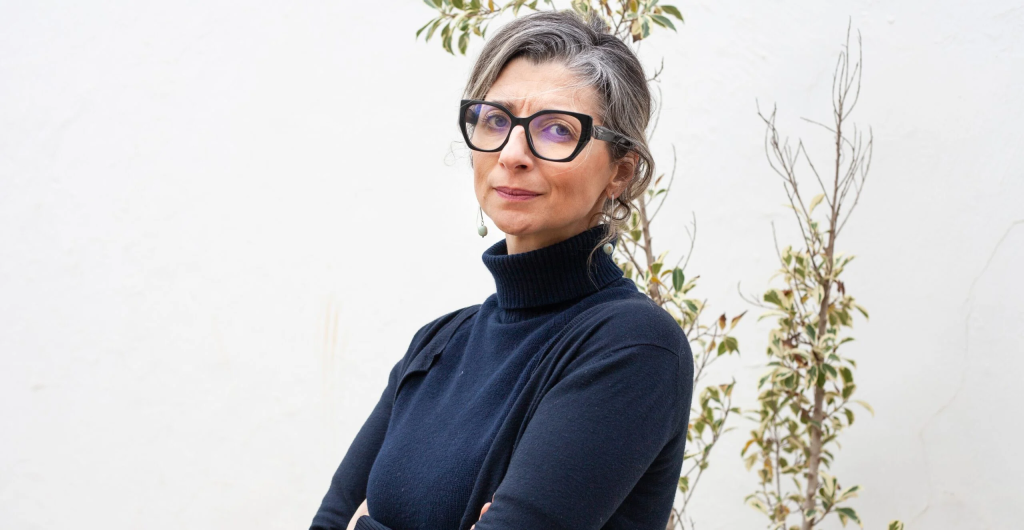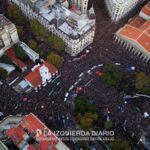
UN head of human rights, Francesca Albanese, is the target of American sanctions after denouncing Gaza as a victim of a silent genocide, where hunger and shots are confused
In the midst of an unprecedented humanitarian crisis in the Gaza Strip, UN Special Rapporteur on Human Rights in Occupied Palestinian Territories, Francesca Albanese, now faces a new barrier in his mission: sanctions imposed by the United States which, according to her, threaten to limit his freedom of movement and action.
In an interview with Reuters By video conferencing, while participating in Sarajevo events in memory of Srebranica’s genocide, Albanese said that US sanctions will have a “cold effect” on their ability to work and interact with US citizens. “This will keep me from getting around and will make it difficult for people who collaborate with me to continue to do so for fear of reprisals,” he said.
The sanctions, announced on Wednesday by US Secretary of State Marco Rubio, include the freezing of assets and possible travel restrictions. The justification of the US government is that Albanese would have encouraged “illegitimate gaps” against Israeli citizens at the International Criminal Court (ICC) in The Hague.
Albanese, Italian, lawyer and academic, is one of the most incisive voices in defending the rights of Palestinians. Recently, he published a report requiring the UN Human Rights Council to impose a weapon embargo and interrupt Israeli business and financial relations, accusing the country of conducting a “genocidal campaign” in Gaza.
“There are no more red lines. It’s scary,” said Albanese, who is the first UN special rapporteur to be the target of US sanctions. The UN itself expressed concern about the measure, asking to be reversed. The European Union also positioned itself contrary, saying “deeply lament” the decision.
Already Israel called the report “illegal, defamatory and an abuse of office.” The country reaffirms that its actions in Gaza are self -defense after the Hamas attack on October 7, 2023, which resulted in the deaths of more than 1,200 people on Israeli soil.
Hunger and death: brutal reality in Gaza
As debates on sanctions and freedom of expression take the center of the diplomatic stage in the Gaza Strip, the reality is of widespread hunger and massive death. Between May 27 and July 7, 798 Palestinians lost their lives while trying to access food distribution centers – most of them, 615 people, near the facilities of the Gaza Humanitarian Foundation (GHF).
“We are facing a cruel choice: starving or risking life seeking food,” says Ibrahim Abu Ghazaleh, 27 -year -old Palestinian photographer. “Humanitarian aid is killing citizens, and hunger is eroding our bodies. They are deliberately killing us in the distribution centers. Hunger has become a gun.”
Mahmoud Basal, Gaza Civil Defense spokesman, held the “Israeli occupation forces” for deliberately shot hungry civilians. “These deaths are not accidental. It is a systematic civilian policy under the pretext of security. They just want to increase the number of victims.”
The Gaza Humanitarian Foundation is one of the few local entities that can still distribute some kind of assistance. However, humanitarian trains face constant attacks. The deaths occur mainly by shots of Israeli tanks and drones, which, according to witnesses and reports of survivors, throw indiscriminately in crowds desperate by a bread or a liter of water.
Anjit Sunghay, head of the UN Human Rights Office in occupied territories, told the report that it is “very difficult” to describe the situation in Gaza. “The deaths continue daily, whether by air strikes, tann shots or gunfire against food seeking food. There is no way to justify that hungry and desperate people represent a threat to the lives of Israeli soldiers. The question we need to ask is: why shoot them?”
Sunghay recalled that, according to International Humanitarian Law, the use of lethal force against civilians is only permissible in extreme situations, such as immediate own defense. “What we are seeing is the systematic use of violence against vulnerable people. It is a clear violation of international law.”
Hunger as a war policy?
The UN has been warning for months that the population of Gaza faces risks of hunger on a catastrophic scale. Since the beginning of the war, in October 2023, more than 57,000 Palestinians have lost their lives, according to local data. Access to food, water and medications is extremely limited. Hospitals work without energy and with obsolete equipment. Children are found in a state of severe malnutrition, many without the strength to cry.
“All possible humanitarian aid is necessary. Food, water, shelter, health, sanitation – everything is urgent,” said Sunghay. “Hunger is not just a side effect of war. It is a direct consequence of policies that limit access to help. And when the only way to get food is facing bullets, we are facing a war crime.”
Israeli version: “Minimize frictions”
Given the allegations of systematic attacks on civilians, the Israeli army told AFP that it works to “minimize frictions” between soldiers and Palestinians, and that performs “exhaustive analysis” of each incident. “Instructions were given to the forces on the ground based on the lessons learned,” said Israeli Defense Army spokesman (IDF), in an official note.
However, independent reports and testimonials from Israeli soldiers contradict this narrative. On June 27, the newspaper Haaretz He published an anonymous report of soldiers who claimed to have received explicit orders to shoot unarmed civilians in humanitarian aid queues. Prime Minister Benjamin Netanyahu and Defense Minister Israel Katz categorically denied the report, calling it “malicious lies” and accusing the vehicle of trying to “defame the IDF, the most moral army in the world.”
António Guterres, UN Secretary-General, recently warned that “any operation that forces desperate civilians to move to militarized areas is inherently insecure and killing people.” His statement echoes the clamor of humanitarian organizations and human rights groups that point to a deliberate strategy of hunger use as a weapon of war.
With information from Reuters*
Source: https://www.ocafezinho.com/2025/07/14/relatora-da-onu-e-perseguida-pelos-eua-por-expor-o-horror-em-gaza/

